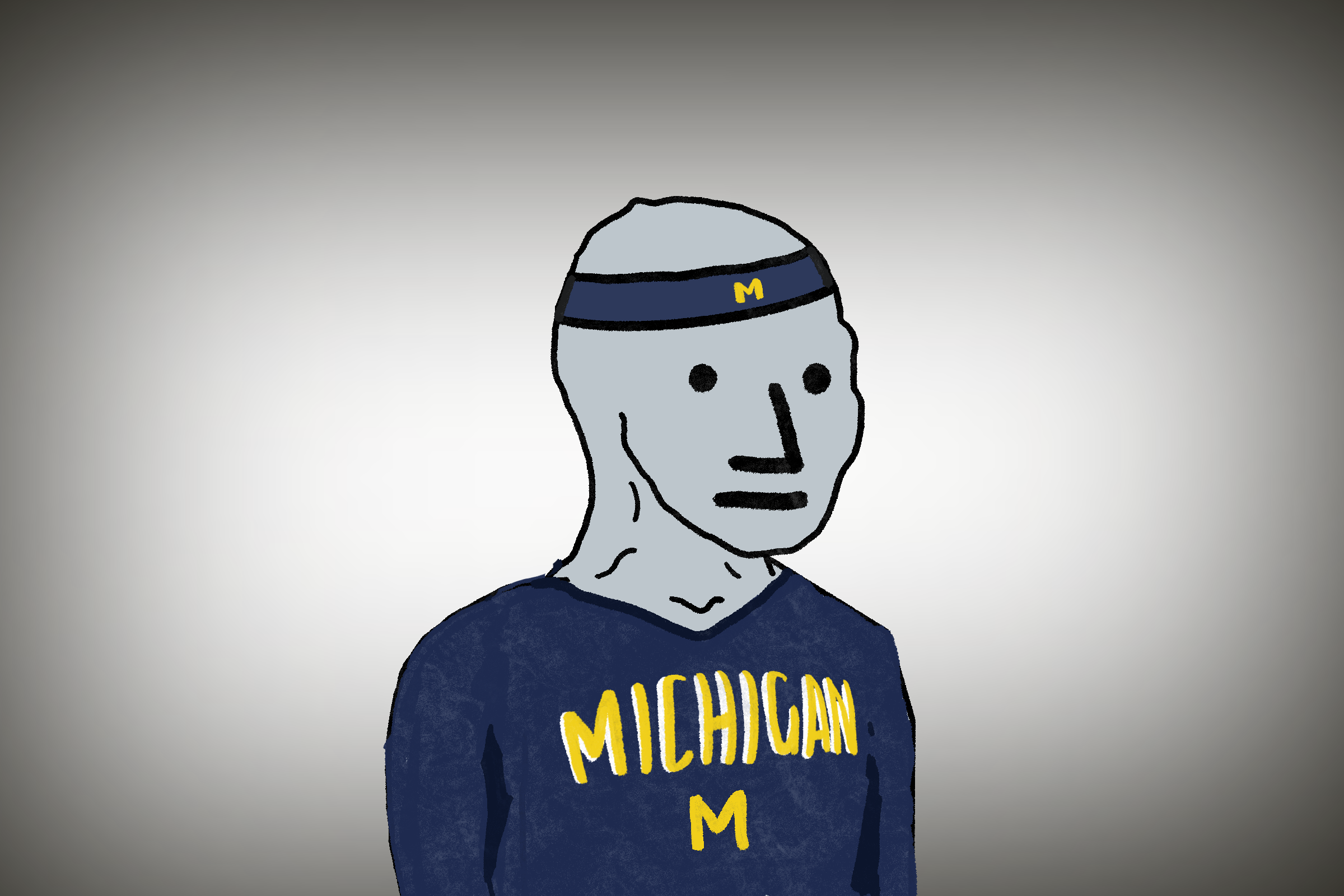[ad_1]
Something dawned on me when I was people watching in the Diag last week. I was sitting on one of those concrete slabs that border the block ‘M,’ gazing blissfully at the crowds of students walking by. As I watched them angle their movements to avoid stepping on the ‘M,’ it occurred to me that not one of them had the faintest idea that I was thinking about them in my head. To them, I was just another student on campus, a fixture in the background on their way to class. To them, I was an NPC.
Yes, I just called myself an NPC. No, I am not a 13-year-old TikToker. For those who don’t know, an NPC is a “non-player character” in a video game, whose actions are automated. The term has been coopted in online culture to describe people who are basic, boring or unoriginal. In short, NPCs are background characters both in virtual and real life.
It’s undeniably an insult to call someone an NPC; you’re essentially saying that the person is a mindless drone who lacks individuality and exists solely to fit in the background of your life. No one wants to be called an NPC. Yet, at a large state school like the University of Michigan, this tends to be our default perception of each other.
There are tens of thousands of students and faculty members at the University, and the overwhelming majority are strangers to you. Even I, your favorite Opinion columnist, could be sitting next to you right now as you read this article, and you’d probably have no idea. But it’s not just the fact that I’m a stranger that makes me an NPC. It’s the fact that, even if I were near you, you’d likely choose not to interact with me, deciding — consciously or unconsciously — to treat me as part of the background. That’s what makes me an NPC.
The truth of the matter is that, to most of those who perceive us, we are all U-M NPCs. That is, to other U-M students, we are all superficial versions of ourselves conjured up in their heads. Each of us has the capacity to acknowledge the complexity of strangers, the vividness of their triumphs and tribulations and the uniqueness of their individual experiences. But our deliberate decision to limit our social interactions is an indication that we view strangers as nonentities and, therefore, lifeless.
This can’t just all be about talking to strangers though, right? It has never really been reasonable or socially acceptable to spark up conversations with every student or random stranger in Ann Arbor, not to mention that an interconnected web of relationships exists and connects our campus community in more ways than most students realize. Additionally, students still regularly interact with people they don’t know — it just happens over the internet, rather than in person.
While the term NPC has migrated from online culture into real life, the normalcy of interacting with strangers on social media has not followed suit. This is the root of what I’d call the “NPC epidemic.” What does it say about our generation’s ability to form real connections when we feel that it is more accessible to feel connected to a random social media influencer than the people around us in real life?
Students have no real incentive to bolster their social circles with strangers or alter their perspective because we automatically consider ourselves the “main characters” of our college story. Each of us has our own friend groups, academic pursuits and campus struggles, so it’s only natural to cast the peers you don’t know in the non-player character category.
The issue with this “main character” perspective is that it’s hypocritical. When we label others as NPCs or view them as such, we’re implying that college is inherently for the individual. But the very nature of college revolves around forming friendships and connections that rely on acknowledging the importance of the people around us. You can’t thrive in our community if you view everyone else as background characters.
If all of us are NPCs, then we are bound by a lack of originality. We all might look at one another and see redundancy, but it doesn’t have to be that way. In recognizing the one-dimensional space we often occupy in strangers’ minds, we can better understand the diverse perspectives of those around us and ultimately make our time at the University a more fulfilling experience.
Max Feldman is an Opinion columnist who writes about campus culture and the overlooked issues facing students in his column “Overlooking Michigan.” He can be reached at maxfeld@umich.edu.
Related articles
[ad_2]
Source link











